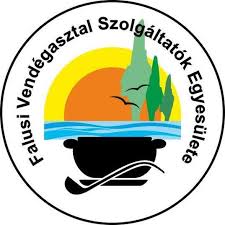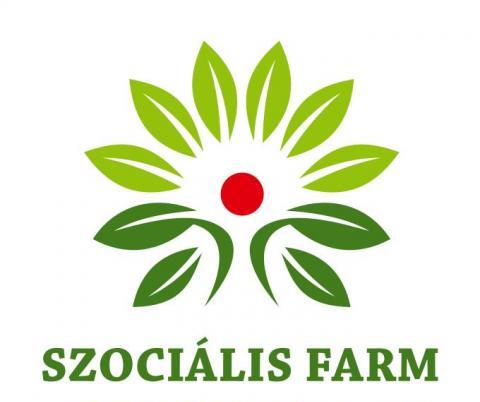
February 24, 2016
One of the main goals of Kislépték is to help small-scale farmers applying the food hygiene, agricultural production, taxation and trading rules as “user friendly” as possible.
We are informing our members and supporters, as well as the wide society of small-scale farmers on our new achievements as how to construe, how to apply Hungarian law in their daily work.
We would like to explain two legal expressions, which are actually fundamental for the small-scale farmers for their daily activity:
I.Household farmer [in Hungarian őstermelő, sometimes used the English expression of primary producer, small holder, subsistence farmer]This is a form of private entrepreneurship.
Personal Income Tax Act (Act No. CXVII of 1995), specially annex 6, sets out rules for household farmers and providing preferential tax regime for their income. The preferential tax regime applies if the products below sold from the agricultural activities (such as crop production, animal husbandry, horticulture, forestry and collection, etc.) or food production, processing and selling according to the regulations of small producers. Household farmers may only sell products produced by themselves on their own farms.
Products: live animals (excl. pets, wild games, saddle and race horses); milk and milk products, eggs (excl. wild birds); natural honey and related products (e.g. unprocessed bee wax, bee gum); products of animal origin (e.g. fur, feathers, wool); live plants, flowers (incl. buds, leaves, branches and other plant parts); vegetables (fresh, refrigerated, frozen, temporarily preserved or dried edible roots and tubers, also cleaned, harrowed, peeled, cut, and pitted vegetables, potato); fruits and nuts (as well as fresh, refrigerated, frozen, temporarily preserved or dried edible rinds of citrus fruits and melons, also cleaned and processed fruits cut in quarters or halves); herbs and spices, cereal grains (such as wheat, rye, barley, oats, maize, rice, sorghum, buckwheat, millet, canary seed, triticale and other hybrids excluding: those processed by the milling industry); oil seeds and oleaginous fruits; seed for sowing, fruits or spores for propagation; industrial plants (e.g. hops and lupulin); raw materials for weaving or for the production of brooms or rushes; processed (permanently preserved or conserved, or instantly edible) vegetables, fruits and nuts; wine-grape; marc; etc.
Household farmers must be registered and obtain a household farmer’s card from village agronomists (National Chamber of Agriculture).
Basics on their preferential tax regime:Their income tax rate is the general income tax rate, which is 15 % in 2016, but the calculation of the tax base is different from general income tax rules, depending on the amount of their income. Income below HUF 600.000 (~1.900 euro) is tax free, no declaration is required. In the case income is between HUF 600.000 (~1.900 euro) and HUF 4.000.000 (~13.000 euro) and household farmer possesses invoices of costs for at least 20% of their income the tax base is “0” and a “negative tax declaration” is required. Up to the income of HUF 8.000.000 (~26.000 euro) one may choose between itemised cost accounting or flat rate. [Income Tax Act defines these household farmers as small producers (kistermelő), this must be construed within tax rules, see below chapter II.] In the case of itemised cost accounting (i.e. all invoices must be collected) the tax base is 60% of the income, while choosing flat rate the tax base is 6 % of the livestock breeding income and 15 % of the crop production. Over the income of 8 million the general rules of the Income Tax Act applies.
Please note that this is a general but not full description, we are not tax consultants.
II.Small producer (in Hungarian kistermelő)
This is a food hygiene category set out in Agricultural and Rural Development Minister Decree of 52/2010(IV.30.).
This allows small-scale farmers, including household farmers, to sell their own cultivated, produced and processed product with a flexible food hygiene rules based on Regulation (EC) No 852/2004.
Small producer must register at the food chain safety and animal health department of the district offices.
Who may register as small producer?
A private person with registered tax status as household farmer (primary producer), or private entrepreneur.
What products may be sold or what related activities may be conducted by the small producer?
▪primary products grown, bred or collected;
▪processed products;
▪farmhouse catering service;
▪provision of certain services to private persons (consumers) or small producers, such as: fumigation, drying and grinding; animal slaughtering and processing its meat; preparing food (incl. bread, pasta, bottles fruit, jam, pogacha); product leaning; pressing and pasteurising of oil seed, fruits and vegetable.
Small quantity rule: all these products or services may not exceed a certain quantity:
•slaughtering and selling the meat of grown or upgrowing swine, sheep, goat, ostrich, or emu: 6 pieces/week, 72 pieces/annum;
•slaughtering and selling the meat of piglet under 50 kg, lamb or goatling under 15 kg: 10 pieces/week, 120 piece/annum;
•slaughtering and selling the meat of grown or upgrowing cattle: 2 pieces/week, 24 pieces/annum;
•slaughtering and selling the meat of calf under 100 kg: 2 pieces/week, 24 pieces/annum;
•slaughtering and selling the meat of farm chicken: 200 pieces/week. Slaughtering and selling the meat of water fowl or turkey: 100 pieces/week;
•slaughtering and selling the meat of rabbit: 50 pieces/week;
•producing and selling meat foodstuff : 70 kg/week, 2600 kg/annum.
•fish: 6000 kg/annum
•milk : 200 liter/day, plus dairy product 40 kg/day;
•egg: 500 pieces/week, 20000 pieces/annum.
Territorial limitation:
Selling from the farm any product and provide services (e.g. farmhouse catering);
Selling of primary product of plant origin (apple, potato) and honey, living fish;
-nationwide directly to consumer;
– within region (i.e. country of the place of the production and Budapest or within 40 air km from the pace of the production within the territory of Hungary) to retail or catering (incl. public catering);
Selling of primary product of animal origin (milk, egg, raw meat, etc.) and any other processed foodstuff (cheese, jam, sausage, etc.) in the region to consumers, retail or catering (incl. public catering).
Prepared by Dr Ágnes Major















